Do you like to paint? Maybe you’re a professional painter, or maybe you just like to paint your house once in a while. No matter what, it’s important to know how to clear your lungs of spray paint. In this blog post, we will discuss 11 of the best ways to do that. We will also provide some quick tips on how to avoid getting sick from the fumes in the first place!
What Are Spray Paint Fumes and How Dangerous Are They to My Lungs?
Spray paint fumes are a mixture of chemicals that can be toxic if inhaled. The most dangerous chemical in spray paint fumes is toluene. Toluene is a neurotoxin that can cause brain damage and is linked to cancer. Other chemicals in spray paint fumes include xylene and methylene chloride. These chemicals can also be harmful to your health if inhaled because they can irritate your lungs and cause problems with your respiratory system.
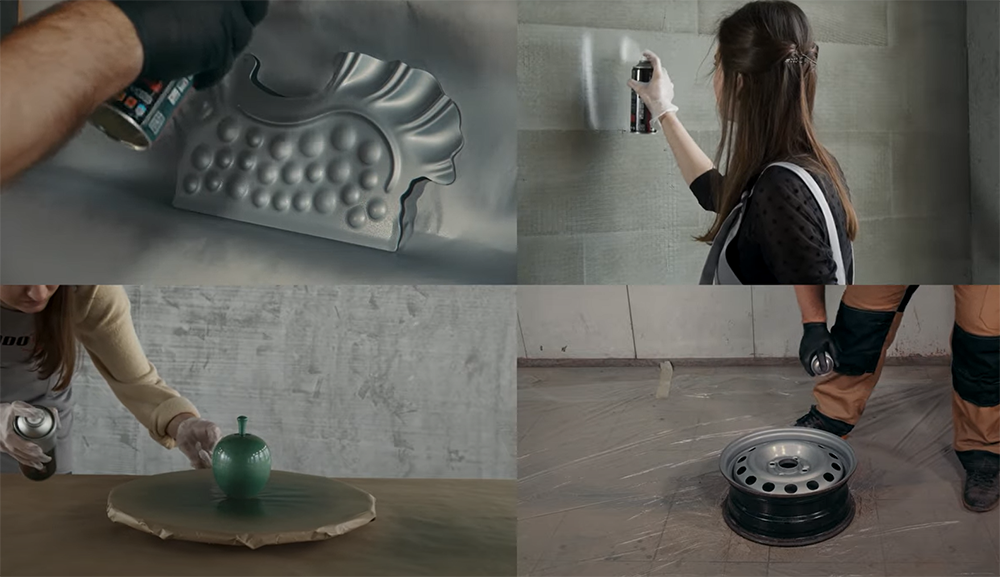
The best way to protect your lungs from spray paint fumes is to wear a respirator mask when you are using spray paint. A respirator mask will filter out the harmful chemicals in the air and help you breathe easier. Make sure that you buy a mask that is rated for filtering out toluene and other chemicals found in spray paint fumes.
If you have been exposed to spray paint fumes, it is important to get fresh air right away. Go outside or open a window to let fresh air into the room. If you are having trouble breathing, call 911 or go to the nearest hospital emergency room.
These are just a few quick tips on how to clear lungs of spray paint. Below we will dive a little deeper into each of these topics. [1]
Harmful Spray Paint Ingredients
Most spray paint products contain harmful chemicals that can damage your lungs if inhaled. The three main ingredients in spray paint that can be harmful to your health are:
- Toluene: A solvent that is utilized to break down other substances in the paint and maintain color uniformity. Toluene is a neurotoxin that can cause dizziness, headaches, and memory loss.
- Xylene: Another solvent used in spray paint. Xylene is also a neurotoxin and can cause the same health effects as toluene.
- Phenol: An antiseptic that is added to some types of spray paint to prevent bacterial growth. Phenol is a corrosive chemical that can burn your skin and eyes.
- Acetone: A solvent that is used to remove paint from surfaces. Acetone is a flammable liquid and can cause light-headedness, dizziness, and vomiting.
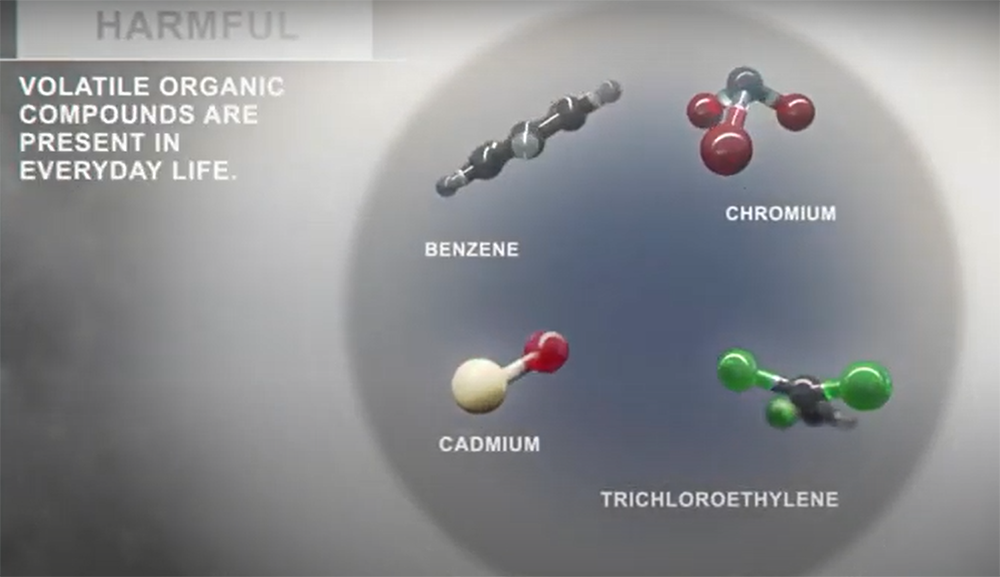
- Carbon black: A pigment that is added to spray paint to give it a black color. Carbon black is a carcinogen and can increase your risk of lung cancer.
- Lead: A metal that is added to some types of spray paint to make it more durable. Lead is a neurotoxin that can damage the brain and nervous system.
- Methyl Ethyl Ketone: A solvent that is used to dissolve other ingredients in the paint. Dizziness, headaches, and nausea are all possible symptoms of Methyl Ethyl Ketone exposure.
Spray paint fumes can also contain other harmful chemicals, such as volatile organic compounds (VOCs), metals, and acids. These chemicals can cause health effects ranging from eye and respiratory irritation to cancer.[2]
If you are concerned about the health effects of exposure to spray paint fumes, it is important to seek medical attention as soon as possible. Symptoms of chemical pneumonitis, such as coughing, difficulty breathing, and chest pain, can develop quickly and may be life-threatening.
Main Spray Paint Types
There are three main types of spray paint that can cause problems for your lungs: oil-based, water-based, and acrylic. Oil-based paints are the most dangerous to your health, as they release harmful fumes that can damage your lungs. Water-based paints are not as harmful, but can still cause problems if you’re exposed to them for too long. Acrylics are the least harmful type of spray paint, but can still be irritating if you’re sensitive to them.
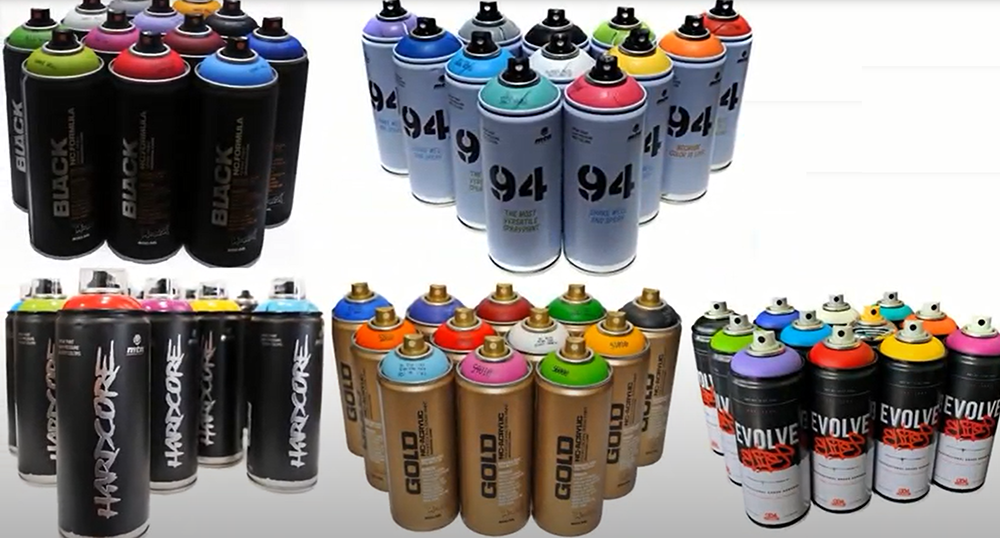
If you’re working with spray paint, it’s important to know which type you’re using and take precautions accordingly. Here are some tips on how to protect your lungs when using each type of spray paint:
- Oil-Based Spray Paints
- Water-Based Spray Paints
- Acrylic Spray Paints
When working with oil-based spray paints, it’s important to wear a respirator or face mask to protect your lungs from harmful fumes. You should also work in a well-ventilated area to ensure that the fumes don’t build up and cause problems. If you’re exposed to the fumes for too long, you may experience coughing, wheezing, or difficulty breathing. If you experience any of these symptoms, seek medical attention immediately.
Water-based spray paints are not as harmful as oil-based paints, but can still cause problems if you’re exposed to them for too long. You should wear a respirator or a face mask when using water-based spray paints since they are irritant to the eyes and skin. You should also avoid breathing the vapors directly since this can irritate your lungs. If you have any trouble breathing, wheezing, or coughing, go to the doctor right away.
Acrylic spray paints are the least harmful type of spray paint, but can still be irritating if you’re sensitive to them. When using acrylics, you should wear a respirator or face mask and work in a well-ventilated area to avoid inhaling the fumes. If you experience any coughing, wheezing, or difficulty breathing, seek medical attention immediately.
Protecting your lungs is important when working with any type of spray paint. By taking the proper precautions, you can avoid harmful fumes and keep your lungs healthy. [3]
11 Effective Remedies for Cleaning Spray Paint from Your Lungs
1. Steam treatment
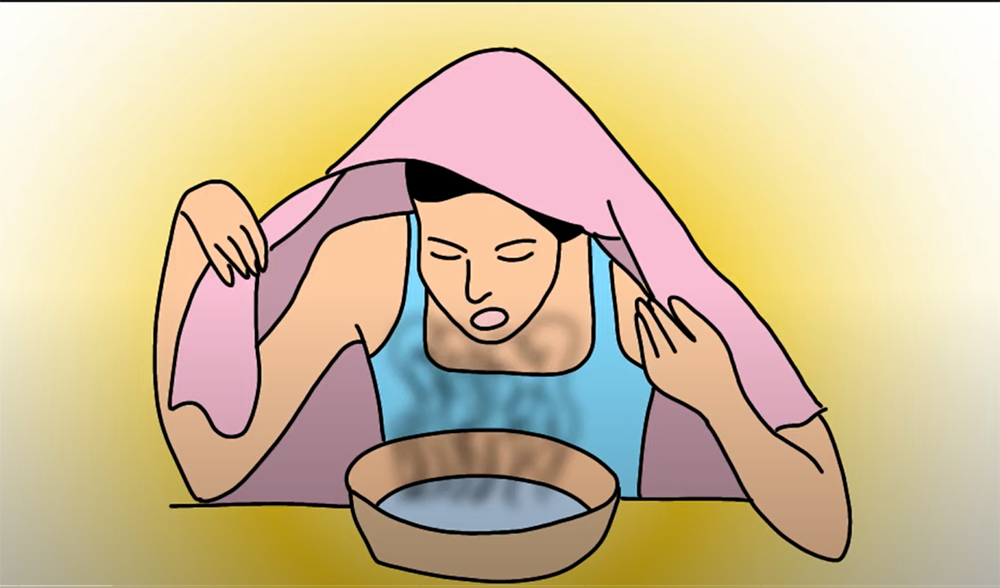
One of the most effective ways to remove lungs is by using steam. You can do this by either taking a hot shower or sitting in a sauna. The heat and moisture will help to loosen up the paint and make it easier to cough up. Additionally, you can also add a few drops of eucalyptus or menthol oil to your steam treatment to help clear your lungs even more effectively.
If you don’t have access to a steam room, you can also boil some water and inhale the vapors for similar results. Just be careful not to burn yourself! [4]
2. Controlled coughing
Controlled coughing is a great way to remove any build-up of mucus or liquids in your lungs. It also helps to loosen and break up any congestion. To accomplish this, sit up straight and breathe in deeply through your nose. Then, cough out forcefully several times. Repeat this until you feel that your lungs are clear.
If you have asthma or another lung condition, it’s important to talk to your doctor before trying controlled coughing on your own. This is because it can sometimes make symptoms worse.
3. Get rid of the mucus from your lungs
If you have mucus in your lungs, it’s important to get rid of it. Mucus can trap bacteria and make it harder for your lungs to clear the infection. There are several ways to get rid of mucus:
- Place your back against a wall with your feet about 18 inches away from the wall. Bend your knees and lean forward so your body forms a right angle at the hips. Exhale sharply through pursed lips to force all of the air out of your lungs. Inhale slowly and deeply through your nose, feeling your stomach rise as you fill your lungs with air. Hold your breath for a count of three, then exhale slowly through pursed lips. Repeat this process several times until you feel like you’ve cleared mucus from your lungs.
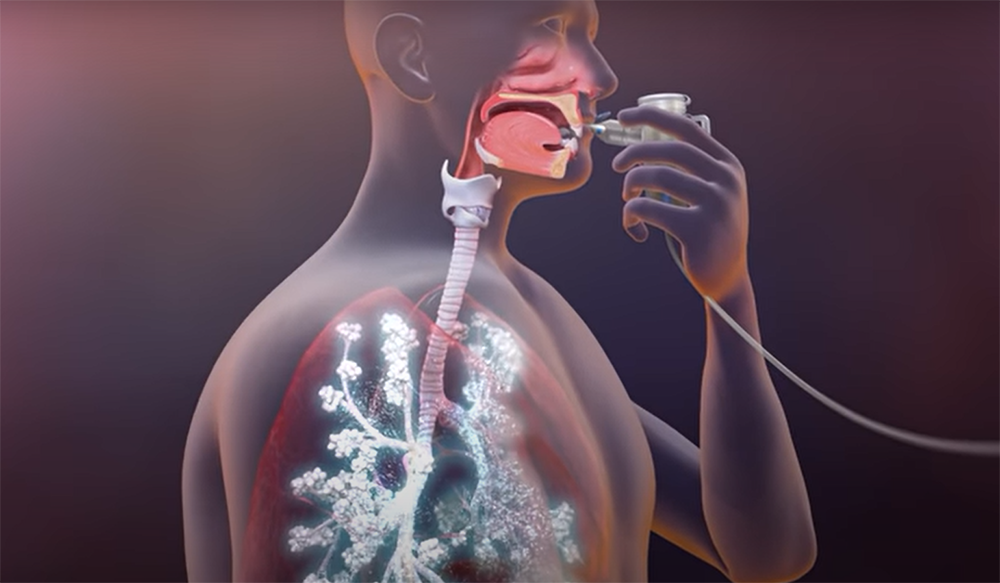
- On your side: Lie on your right side with a pillow between your legs. Gently bring your knees up to your chest and hug them with your arms. This position will help drainage move from your upper lungs down to the lower lobes of your lungs where it can be coughed out more easily.
- On your stomach: Lying on your stomach with a cushion under your hips may assist drainage flow from your upper lungs down to the lower lobes.
Try these quick tips to clear your lungs of spray paint fumes and other irritants. If you have trouble breathing or if your symptoms last more than a few days, see your doctor.
4. Do some exercise
The best way to clear your lungs of any foreign substance is to get moving and do some exercise. This will help to loosen up the mucus in your lungs and make it easier to expel. Taking a brisk walk, going for a run, or even just doing some jumping jacks can help to get things moving.
5. Drink green tea
Green tea is rich in antioxidants, which can help protect your lungs from the harmful effects of pollution and toxins. Drinking green tea regularly may help to reduce your risk of developing lung cancer.
In addition to green tea, you can also try herbal teas such as chamomile or ginger tea. These teas can help to soothe your lungs and reduce inflammation. [5]
6. Foods that reduce inflammation are a must
If you’re looking for ways to clear your lungs of spray paint, you need to focus on reducing inflammation. There are certain foods that can help with this, and you should make sure to include them in your diet. Foods like salmon, turmeric, ginger, and green leafy vegetables are all great choices. You should also avoid processed foods and sugars as much as possible.
Including these inflammatory-reducing foods in your diet will help to clear your lungs of spray paint and improve your overall health. Make sure to talk to your doctor before making any major changes to your diet, and always listen to your body. These suggestions are simply meant as a starting point. [6]
7. Chest percussion is recommended
Percussion therapy is a type of massage that uses short, quick strokes on the chest and back. This helps to loosen and break up mucus so that it can be coughed up more easily. It’s a good idea to talk to your doctor or healthcare provider before trying this method, as they can give you specific instructions on how to do it safely.
If you’re interested in trying chest percussion to clear your lungs of spray paint, there are a few things you need to keep in mind. First, make sure that you’re using quick, short strokes rather than long, deep ones. Second, be gentle and avoid injuring the person receiving the therapy. Finally, talk to your doctor or healthcare provider beforehand to get specific instructions.
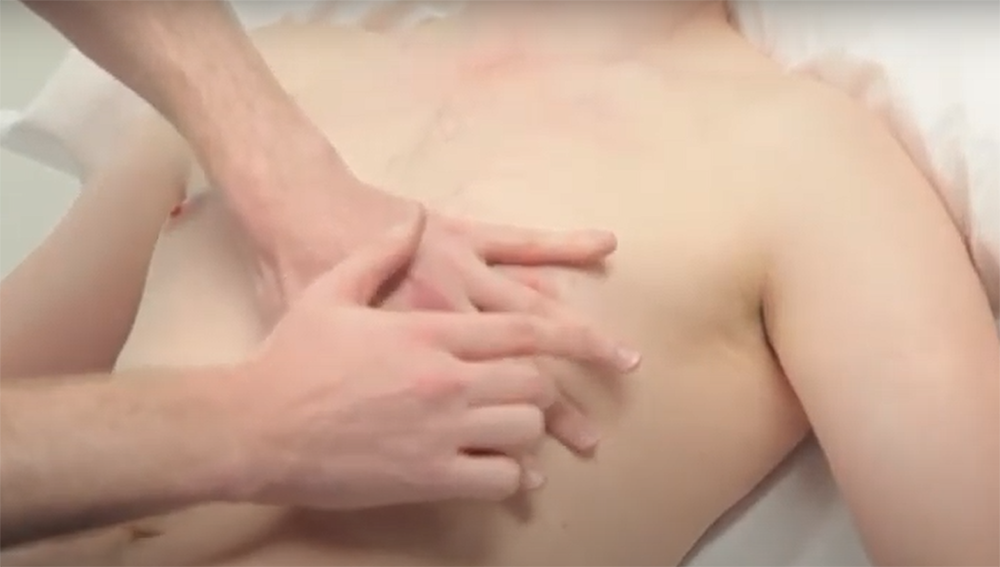
If you or someone you know is having trouble clearing their lungs of spray paint, chest percussion may be a good option for you. It’s relatively easy to do and can provide relief from symptoms quickly.
8. Take a walk
When you have time, take a walk outside. Walking can help to clear your lungs and reduce congestion. If you’re feeling short of breath, stop and rest as needed.
9. Avoid using scents or perfumes
Scented products can irritate your lungs, especially if you have asthma or are sensitive to fragrances. If you must use them, try to find unscented versions or natural options. You can also ask your doctor about using a nasal spray to help reduce the irritation.
In general, it’s best to avoid using any type of aerosol that contains irritants like alcohol, pesticides, or other chemicals. If you have to use them, be sure to ventilate the area well and wear a mask.
Asthma inhalers can also help reduce symptoms and make it easier to breathe. If you’re not sure if you have asthma, talk to your doctor. They can help you manage your symptoms and get the right treatment.
If you suffer from shortness of breath or wheezing after using spray paint, consult a doctor immediately as this could be a sign of chemical pneumonitis – an inflammation of the lungs caused by inhaling toxic fumes. Chemical pneumonitis is a serious condition and can be fatal if not treated promptly. [7]
10. Use air purifiers
Air purifiers can help to remove particles from the air, including those from spray paint. Be sure to choose an air purifier that is designed for the specific needs of your home.
11. Consume more fluids
Drinking plenty of fluids helps to thin mucus and makes it easier to cough up. Try to drink eight glasses of water or other fluids each day.
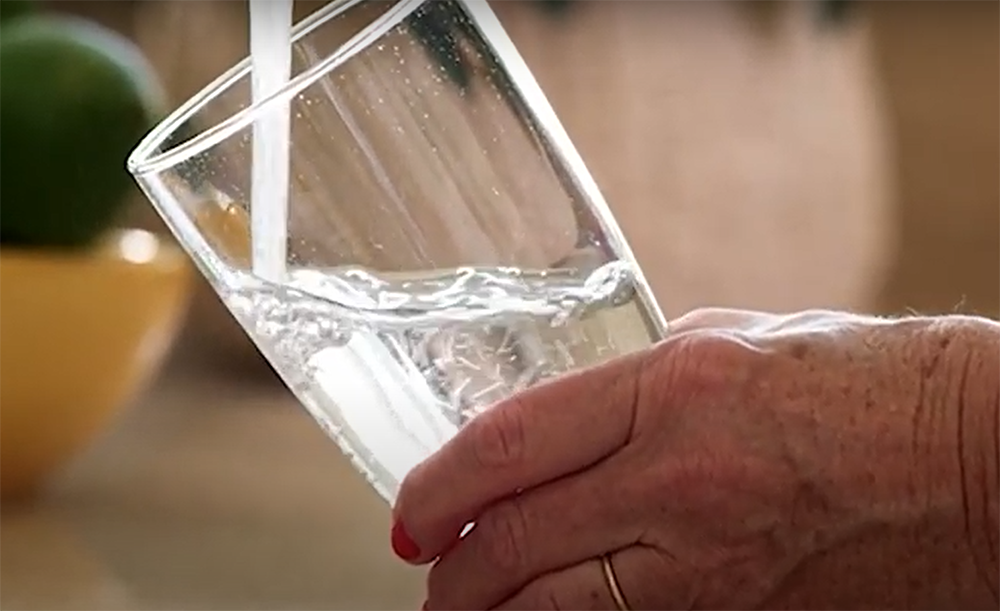
Other easy methods:
- Take a hot shower and let the steam open up your lungs.
- Drink lots of fluids, especially water. This makes it easier to cough up mucus because it reduces the amount of mucus in your lungs.
- Use a humidifier in your home to add moisture to the air and help loosen the mucus in your lungs.
If you or someone you know has been exposed to spray paint fumes, it is important to act quickly to remove the toxins from their lungs. The above tips should help you clear the lungs of any lingering fumes quickly and easily.
FAQs
What happens if you take in too much spray paint?
If you take in too much spray paint, you can end up with serious health problems. Some of the symptoms of overexposure to spray paint fumes include:
- dizziness
- headaches
- nausea
- vomiting
- chest pain
- shortness of breath
- wheezing
- coughing up blood
If you experience any of these symptoms, it is important to seek medical attention immediately.
What should you do if spray paint enters your lungs?
If you’re exposed to paint fumes, it’s important to remove yourself from the area and get some fresh air immediately. If you have a respirator, put it on. If you don’t have one, leave the area and try not to breathe in the fumes.
Once you’re in the fresh air, take deep breaths and cough if you can. This will help clear your lungs of any paint particles that might be causing irritation. Drink plenty of fluids and rest until you feel better. If your symptoms persist or worsen, call a doctor or poison control center for more advice.
If inhaling spray paint has caused difficulty breathing, dizziness, headache, nausea, or other concerning symptoms, seek medical attention immediately. These could be signs of a more serious reaction and require treatment.
What is the quickest method to eliminate toxins from your body?
There are a variety of ways to clear your lungs of toxins, but some methods are more effective than others. Here are a few quick tips on how to remove spray paint from your lungs:
- Drink plenty of fluids. This will help to thin out the mucus in your lungs and make it easier to expel.
- Perform chest physiotherapy. This involves using an incentive spirometer or positive expiratory pressure (PEP) device to help break up the mucus in your lungs and make it easier to cough up.
- Take medication. If you have a prescription for bronchodilators or other medications, take them as directed by your doctor. These can help open up your airways and make it easier to breathe.
- Get plenty of rest. This will help your body to heal and recover from the irritation caused by the spray paint fumes.
If you are exposed to high levels of spray paint fumes, it is important to seek medical attention right away. Symptoms of lung toxicity include difficulty breathing, coughing up blood, and chest pain. If you experience any of these symptoms, please call 911 or go to the nearest emergency room immediately.
Is the spray paint odor toxic?
The short answer is no. However, it can be harmful if inhaled in large quantities or for prolonged periods of time. If you’re concerned about the health effects of breathing in spray paint fumes, it’s best to open a window or door while spraying and to wear a mask that covers your nose and mouth.
How long does it take for pollutants to leave your body?
It takes time for your body to clear lung pollutants. The amount of time depends on how much you were exposed to and how healthy your lungs are.
If you have been exposed to a lot of paint fumes, it is important to seek medical attention right away. If you experience any difficulty breathing, call 911 immediately.
Is it possible to die as a result of breathing spray paint fumes?
Yes. It is possible to die as a result of inhaling spray paint fumes. Inhaling these fumes can cause serious health problems, including brain damage, lung damage, and death. But, it is important to remember that the risk of death from inhaling spray paint fumes is low. Most people who inhale these fumes will not die as a result.
So, what are some ways to reduce the risk of health problems from inhaling spray paint fumes? Here are ten quick tips:
- Avoid using spray paint in enclosed spaces. Use it outdoors or in well-ventilated areas.
- Wear a respirator mask when using spray paint.
- Avoid breathing in directly while spraying. Try to position yourself so that you are not directly in the path of the fumes.
- Limit your exposure to spray paint fumes by taking breaks often. Go outside for fresh air if possible.
- Use less toxic paint fumes whenever possible.
- Make sure the area you are spraying is well ventilated. Open windows and doors if possible.
- Avoid using spray paint near open flames or heat sources.
- Don’t throw unused paint away in an incinerator or burn it. Dispose of it properly according to local regulations.
- Wash your hands and face after using spray paint, and before eating or drinking.
By following these tips, you can reduce your risk of health problems from inhaling spray paint fumes. Remember, however, that the best way to avoid health risks from any chemical exposure is to limit your exposure as much as possible. If you must use spray paint, take precautions to protect yourself and others nearby.
What is spraying paint?
Spray painting is a type of painting that uses a spray gun to apply paint to a surface. Spray painting is often used for projects where a large area needs to be covered, such as walls or ceilings.
Breathing in spray paint fumes can damage your lungs and cause serious health problems. Paint fumes contain harmful chemicals that can enter your lungs and cause problems such as:
- Asthma
- Bronchitis
- Cancer
- Emphysema
Additionally, paint fumes can irritate your eyes, nose, and throat. Paint fumes can cause headaches, dizziness, and nausea in some individuals if they are exposed to them on a regular basis.
In what way can I cleanse my body in only 24 hours?
Detoxing your body can be done in many different ways, but if you want to cleanse your lungs specifically, there are a few things you can do. First, drink plenty of fluids. This will help to thin out the mucus in your lungs and make it easier to cough up. You can also try taking a steamy shower or using a humidifier to help loosen the mucus. Finally, make sure you are getting plenty of rest so your body can heal itself.
If you’re looking for a more immediate solution, however, there are a few quick tips that can help clear your lungs of spray paint fumes. First, try breathing through your nose instead of your mouth. This will help to filter out some of the fumes before they reach your lungs. Second, try to stay in well-ventilated areas as much as possible. If you’re using a spray paint can, for example, make sure to do it outside or in a well-ventilated garage. Finally, if you start to feel lightheaded or dizzy, stop what you’re doing and get some fresh air immediately.
Useful Video: Paint Fumes Health Effect and Prevention Measures
Final Thoughts
Inhalation of spray paint fumes can be extremely dangerous. If you or someone you know has been exposed, it is important to seek medical attention immediately. Following the steps above will help to clear the lungs and prevent further damage. Remember to always wear a mask when working with spray paint, and ventilate the area well. With these precautions, you can enjoy your project without putting your health at risk!
Do you have any tips for clearing lungs of spray paint? Share them in the comments below! And don’t forget to share this article with anyone who might find it helpful! Thanks for reading!
References:
- https://www.sentryair.com/blog/industry-applications/aerosol-spray-paint/the-hazards-of-spray-paint-fumes/
- https://www.ducting-express.co.uk/blog/hazardous-elements-in-spray-paints-and-their-side-effects/
- https://www.masterclass.com/articles/types-of-spray-paints-explained
- https://www.bestspraypaint.com/how-to-clear-lungs-of-spray-paint/
- https://www.healthline.com/nutrition/top-10-evidence-based-health-benefits-of-green-tea
- https://www.health.harvard.edu/staying-healthy/foods-that-fight-inflammation
- https://www.msdmanuals.com/home/lung-and-airway-disorders/pneumonia/aspiration-pneumonia-and-chemical-pneumonitis










Leave a Review